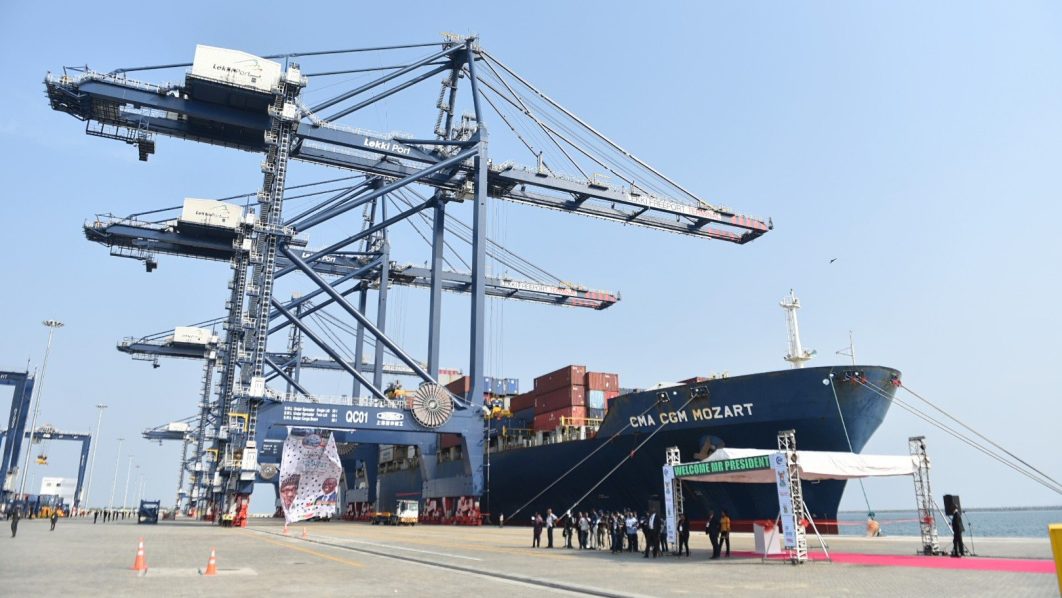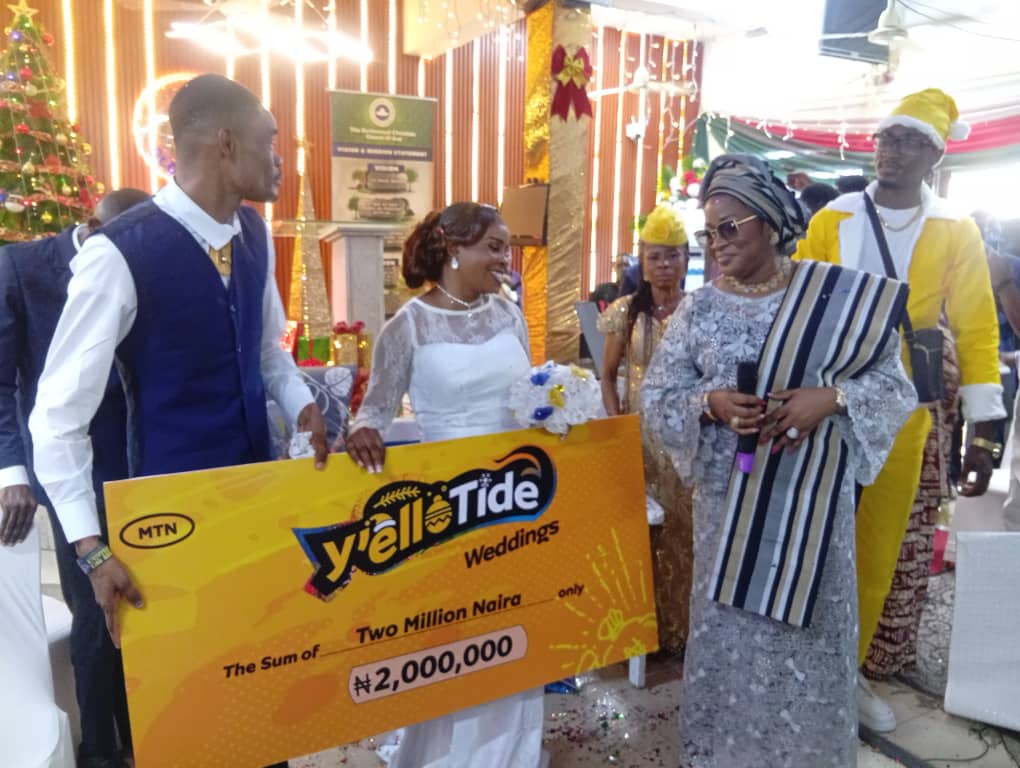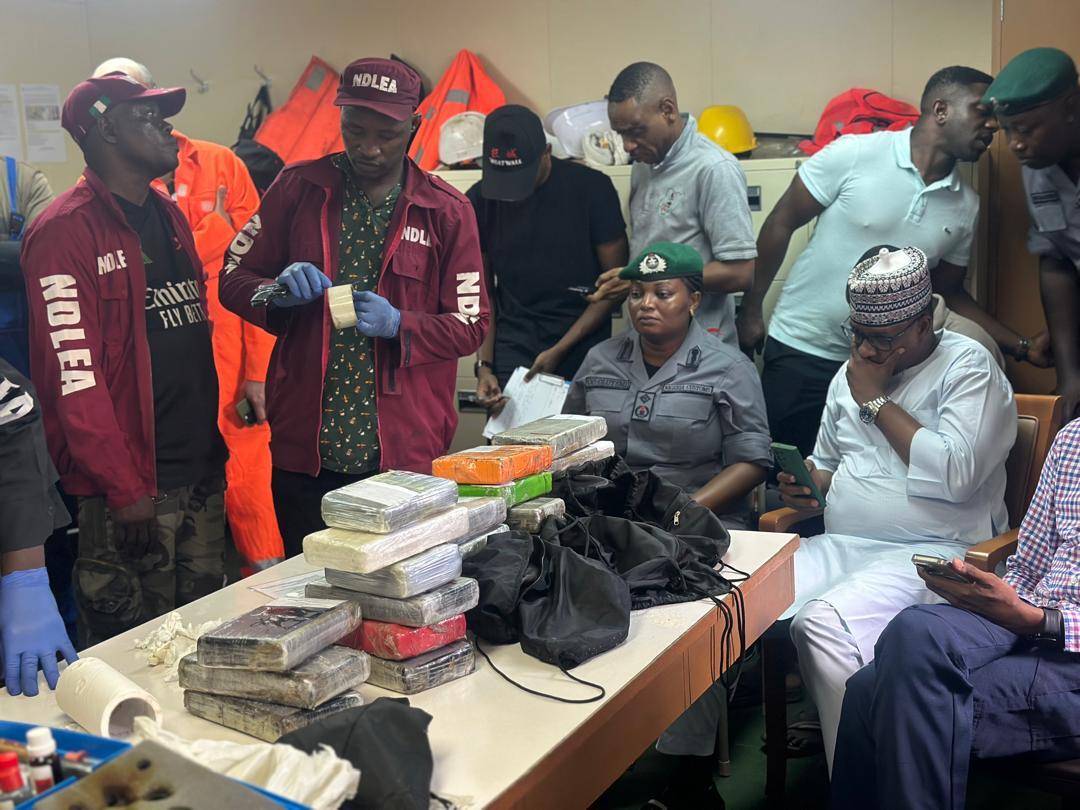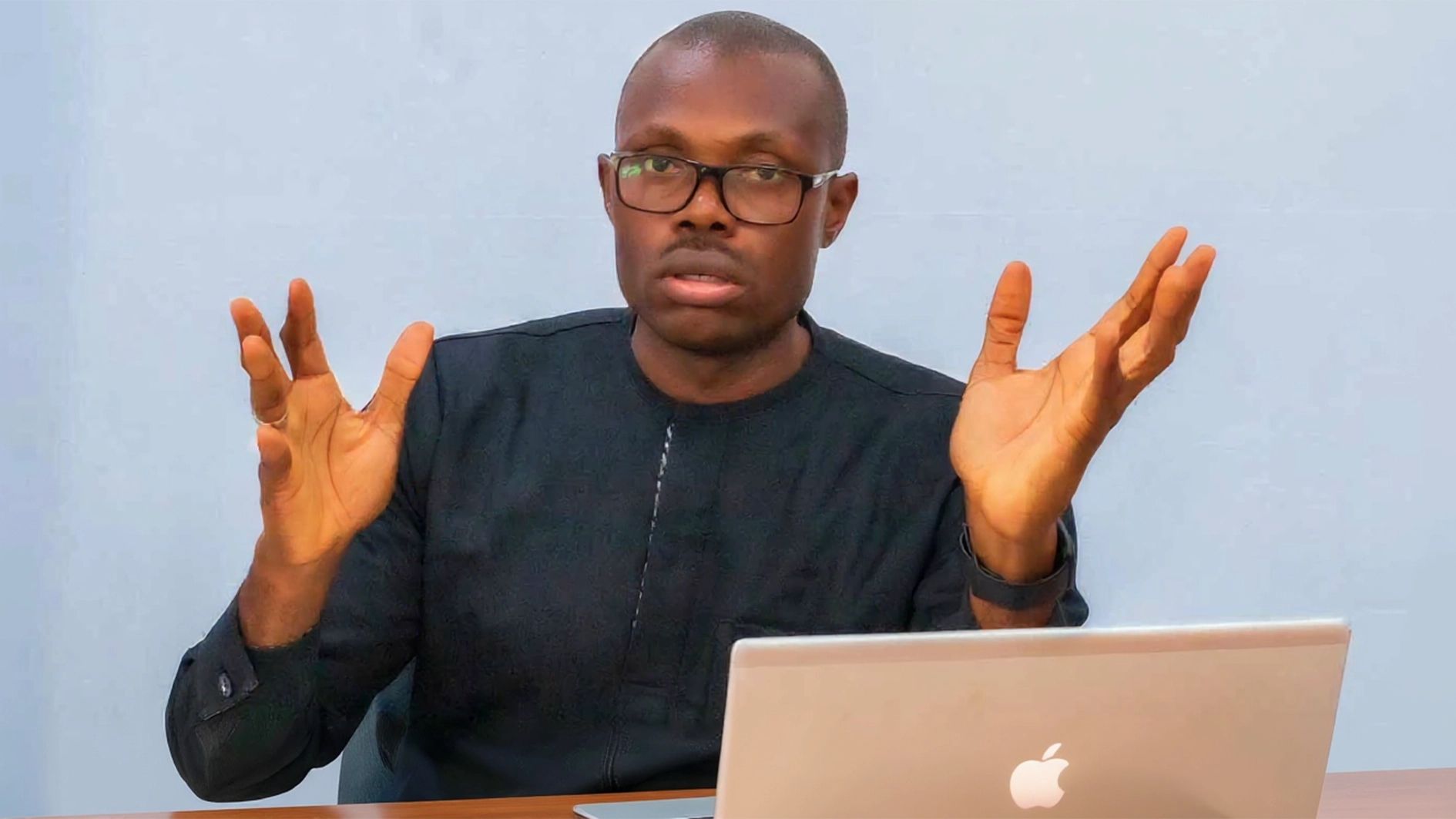 The managing director of the Nigerian Ports Authority, NPA, Mohammed Bello Koko, has said Nigeria has said the clearing of cargoes at Lekki Deep Sea Port would now take at least two days instead of the two weeks it takes at Apapa Port.
The managing director of the Nigerian Ports Authority, NPA, Mohammed Bello Koko, has said Nigeria has said the clearing of cargoes at Lekki Deep Sea Port would now take at least two days instead of the two weeks it takes at Apapa Port.
He also revealed that NPA has commenced wresting cargoes meant for Nigerian ports from neighbouring countries including Benin Republic, Togo, and Ghana.
Koko said this was made possible by the inauguration of the Lekki Deep Sea Port in Lagos and improved port efficiency.
The NPA boss, who disclosed this during an interactive session with newsmen in Lagos, said business has commenced in Lekki Deep Sea Port.
He noted that unlike the two weeks it takes for cargo clearing at Apapa port, it would take two days in Lekki.
His words: “I must say it is the first time a government will start construction of a port, finish and commission it before leaving office.
“As you know, the Lekki Deep Seaport has been in the brain box for over 10 years. It is this administration that came in and gave all the necessary support through the Ministry of Transportation and the Nigeria Ports Authority (NPA).
“They have done the test run on all the necessary equipment, they have done their recruitments, people have been training and the vessels have started coming in, at least, we had a vessel that came in to take out empty containers and by April, we expect that the first commercial vessel will start coming.
“So business has started actually in Lekki Deep Sea Port. Everything is ready and it is going to be automated as we said all the gaps we observed either in Tincan Island Port or Apapa, whether in terms of scanners, equipment and others, you will find all of them in Lekki.
“Unlike the two weeks it takes for cargo clearing at Apapa port in Lagos, at Lekki it would be out in just two days.
“With Lekki Deep Sea Port, the NPA has been able to wrest cargoes from neighbouring countries back to the country.
“It changes everything. For instance, you are an importer, and you know that going to Apapa, sending in your cargo or importing your cargo through Apapa will take you two weeks.
“Whether because the road is bad, whether because the Customs scanning system is limited, or probably the automation is not complete and so on and so forth, it will take you two weeks.
“But if you take it through Lekki, probably in two days you are out.
“First, it is for you to determine who are the importers of these cargoes and if you determine that, you will then ask why they are taking these cargoes to those locations.
“As I have said earlier, what we simply did was just improve efficiency. If you are efficient nobody wants to send his cargoes to Lome and starts dragging it down to Nigeria.”
Also speaking on the trans-shipment of cargo, -Koko said NPA is already working on it, pointing out that neighbouring countries have it but Nigeria currently does not.
He said: “Neighbouring countries have cargo trans-shipment nut we don’t have. So you find that the bigger vessels go to Lome and then they use smaller vessels to bring the cargo into Nigeria.
“But that is what Lekki wants to start doing and they already have a market for it, it is just to have the necessary cooperation by relevant government agencies, so that happens.
“It brings in more revenue to Nigerian Port Authority and more activities into Nigeria. It changes that perspective. We are no more going to have situations where cargo cannot come into Nigeria because of a lack of port infrastructure.
“And the interconnectivity from Lekki to other locations, you know what is going on, there is a survey for a train to be linked there. So it changes everything. It also creates competition; it means that the existing terminal operators need to sit up so as not to lose business to Lekki.”
He further disclosed that four deep sea ports are coming on board across the country as part of efforts at making Nigeria a regional maritime hub in Africa.
“We have had proponents that have been coming with their ideas. I can tell you, we have like three or four now that are really, really serious about investing in other Deep Sea Port. They have seen the possibility, it can be done.
“They understand that somebody has set the pace and they see that it is going to be profitable based on the projections.”
On the revenue generation drive of the NPA and plans to raise the bar by 30 per cent, Koko recalled that it increased from about N317 billion to over N360 billion in 2022.
He said:”I also said that we would ensure that we increase our revenue. We have increased our revenue from probably about N317 billion to over N360 billion in 2022. We transferred about N80 billion to the Consolidated Revenue Fund (CRF) in 2020 and over N91 billion in 2022.
“We have also improved on staff welfare whether it is in terms of their offices, their salaries and allowances, provision of buses, working tools, uniforms where necessary and for the physical port infrastructure, that is a bit of a long term project, but we have gone very far.
“I can say that easily we should be able to increase our revenue by between 20 to 30 per cent in the next year. Now, don’t forget that NPA has not increased its tariff since 1993 and every time you hear the cost of doing business at the port, people ascribe it to NPA, but it is not.
“If the Nigerian Customs increases its tariffs, it increases the cost of doing business at the port, if immigration or the Standards Organisation of Nigeria, SON, increases their tariff, or of NIMASA increases, the cost of doing business at the ports increases.
“When vessels call at the port and spend longer days before it offloads its cargo, that is also cargo waiting time incurring demurrage.
“We are working to ensure that we reduce ship waiting time and the cargo dwell time, but even though we have not increased our tariff for how many decades.”
The first commercial vessel had berthed at the nation’s first deep seaport on April 1, 2023, with a draft of about 16.5 metres.
On NPA’s involvement with the Lekki Port, he recalled that initially, the idea was for NPA to have about 20 to 25 per cent, but felt there was a need to reduce government involvement in private ports and reduce our equity to about 5 per cent.
“But irrespective of the equity that NPA owns in that port, we still remain the regulator. We are the port regulator, we regulate the port activities and there will be revenue coming from there.
“Of course, we know the issue of the land, there is contention as to who owns the land from a certain distance between the ocean and the land. It is owned by the government or NPA, but that was sorted out between Lagos State and the Lekki Deep Sea Port so the equity that we gave actually introduced statutory cover to the fact that you cannot have a private port in Nigeria and the government does not have equity in it. So that is the essence of that equity.”
Shedding more light on barge operations, he explained that it was part of strategies to use multi-modal means of transportation in the maritime sector.
The NPA MD said: “So for the barge operations, what we did, first of all, is that we realized that for us to get multi-modal means of transportation, you need to provide multiple ways of transportation apart from the road, which is the normal one.
“We are looking at rail, and sea, and we have encouraged barge operations. We spoke with the terminal operators and a few individuals that had a few barges to say, ‘Let us give you a few licenses to start moving cargoes via barges.
“But of course, we gave them Standard Operating Procedures (SOPs) and conditions and they have been doing that over a year without the authority charging them anything and we realised that the total percentage in terms of cargo being moved by barges increased astronomically from 10 per cent, it doubled over.
“So we now have situations whereby containers and other cargo are being moved from the ports to off-dock locations and other jetties. It is really encouraging and has reduced the number of trucks on the road.
“Some of the barges take 30 to 40 containers per movement, so that is 30 to over 40 trucks we are taking off the road. So imagine moving cargo from Tin Can and Apapa to Ikorodu or to Ijora, what you have done is that you have reduced the traffic that would have come to the ports. We have also realized that there are a lot of substandard barges, some of the pilots do not have the relevant and required pilot licenses, and some of the badges don’t have communication equipment also and we came up with an SOP to ensure that all those are in place.
“Before we came up with the minimum safety standard for trucks. We also came up with a minimum safety standard for barges, we also gave them the SOP on the times that they are allowed to move, the routes that they should take, and the communication that should take place between them and our control towers.
“We also encouraged them to use self-propelled barges, because most of them have a tug pushing the barge, which is not very efficient and it is very expensive, but we also tried to regulate the cost so that we get more importers or exporters to use the barges.”
On the effort at improving infrastructure in Warri, Calabar and Port Harcourt ports, Bello-Koko said: “What we observed is that first of all, the ports in the East have the longest channels – for instance, Calabar has over 110 km from the fairway buoy to the Port itself, then Warri has over 100 kilometres from the fairway buoy to the port.
“Of course, the multiple issues of security discourage the pilots themselves and the ships from coming into port at a certain time. After 4 o’clock, nobody actually comes in there and then the infrastructure was bad.
“So the first thing we did was to say, okay, you know what, let us improve security patrol within those channels and so we had a discussion with the Nigerian Navy and I will like to appreciate the Chief of Naval Staff for his cooperation.
“We have more security patrols along the channel and then we bought more marine equipment and we have given tariff relief, especially in Calabar for importers. That way, they can use flat-bottom vessels to come in there. We are currently working on the rehabilitation of the collapsed breakwater in Warri.
“A breakwater is a physical engineering infrastructure in the middle of the sea that is meant to reduce siltation and migration of silt into the channel where it collapsed over 10 years ago.
“But we have been able to conclude and finish the surveys as it relates to the breakwater. The essence here is to reconstruct it and it is going to cost a lot of money over a hundred million dollars to construct a new one. So, by the time you do that, you reduce the siltation into the channel.
“But what we have been doing is remedial dredging up to the fairway buoy and that way, you will have more vessels coming in, because two to three years ago, the instances of vessels going aground were quite frequent and we have been able to resolve that.”






